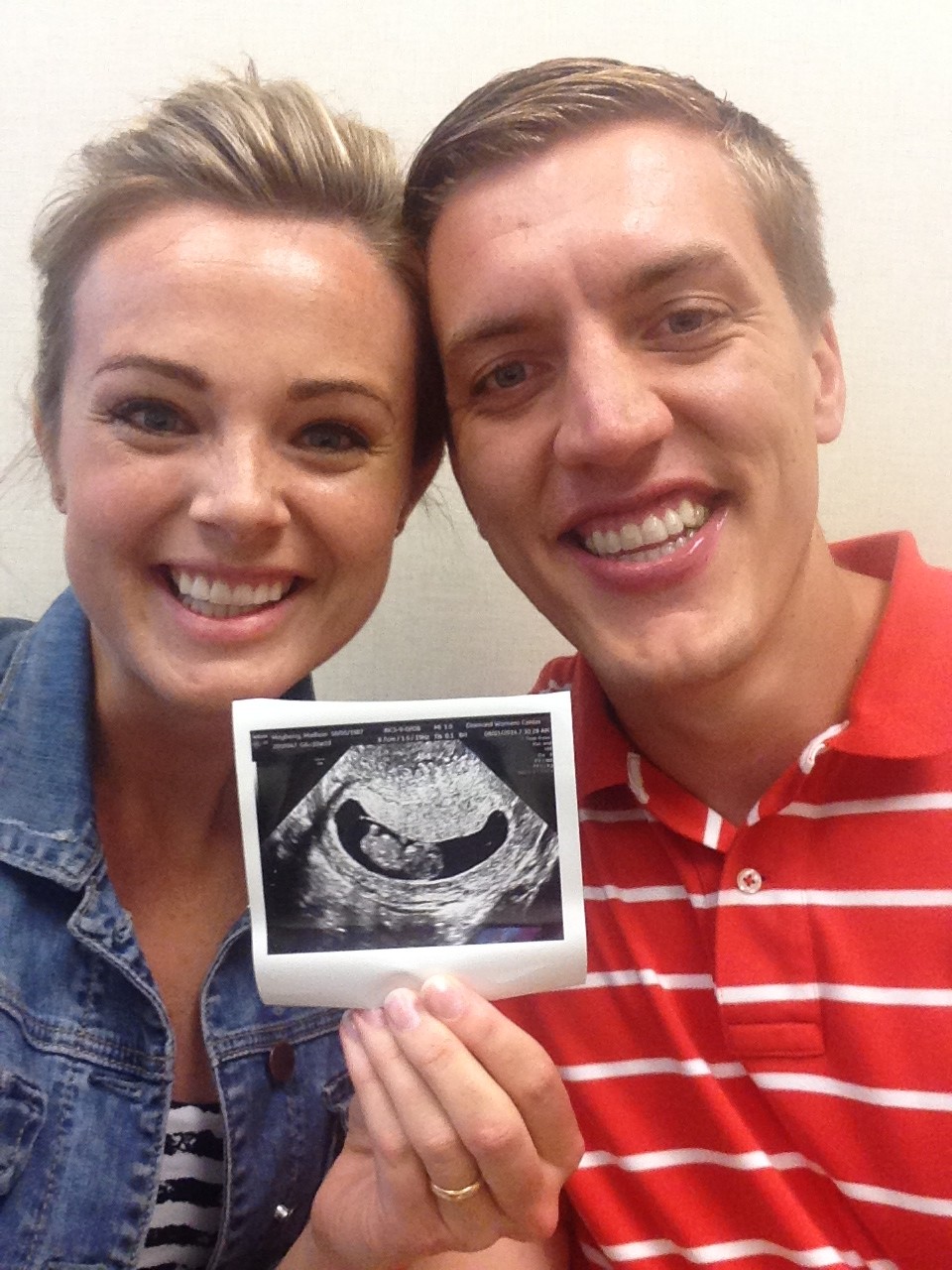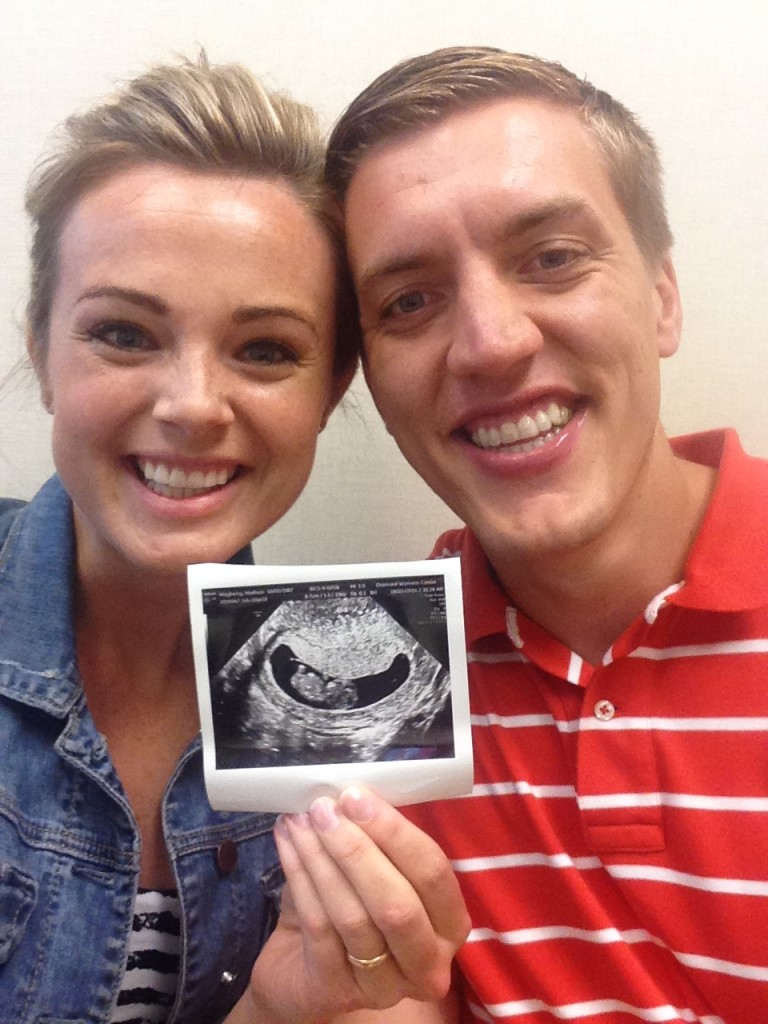I realize that I’ve posted quite a bit about pregnancy-related topics lately. Hang with me if pregnancy posts drive you crazy, because I have some great recipes coming to the site later this month! Since opening up about our difficult journey to baby, my inbox has been flooded with questions about doctors and medicines and acupuncture. I’m always happy to answer each question individually via e-mail, but I wanted to put it all into a single post as another resource for women traveling the same journey.
Before I launch into what we did differently this time around, I want to say that I was a bit torn about sharing this post. First, despite the fact that we’re now past 16 weeks, I have no idea what the ultimate outcome will be of this pregnancy. Second, I strongly believe that the baby I’m carrying is a miracle and a result of so many heartfelt and sincere prayers. I don’t ever want to steal away from the miraculous nature of this pregnancy in favor of condensing it down to a science. We truly have no idea what “did the trick” but believe that God worked through some of the many medical resources available to us.
1. A Daily Baby Aspirin
After our second miscarriage, one of the first things our doctor suggested was for me to start a daily baby aspirin regimen. Aspirin isn’t typically recommended for pregnant women, but in some cases it has shown to have benefits for women who have difficulty conceiving or staying pregnant. Although my blood tests came back negative for any clotting disorders (a common cause of recurrent miscarriage) my doctor said sometimes a small dose of aspirin can prevent small clotting issues that may go under the radar undetected.
2. Acupuncture (a lot of it!)
The week after our second miscarriage, I started going to weekly acupuncture treatments at a practice specializing in pregnancy and fertility at the recommendation of a family friend. Thankfully the treatments were 80% covered by insurance (!!) so it was affordable and extremely enjoyable. I went every week for two months leading up to getting pregnant and every week through the first 12 weeks of pregnancy. Now I’m going once every month until the end of my pregnancy, when I will resume weekly treatments.
I can honestly say that the acupuncture helped tremendously with recovery after miscarriage compared to my previous experience and helped my body get back on track right away. It also helped my stress levels and most of the time I found myself falling asleep during the treatments. Additionally, my acupuncturist prescribed me several herbal supplements that I took throughout my cycle and during the first 12 weeks of pregnancy.
3. Lifestyle Modifications
My acupuncturist also suggested several lifestyle modifications that I followed during the first trimester, which included eating organic, grass-fed red meat to help build my blood supply and focusing on exercises that were “nourishing” rather than depleting to my body. That means lots of walking, swimming, yoga and Pilates and avoiding running, high impact cardio and other intense workouts that would deplete my body.
4. Changing My Vitamins
Almost everything in my blood panel came back normal except for the fact that my doctor informed me I tested positive for MTHFR, a common (but rarely tested for) genetic mutation that inhibits my body from properly processing folic acid (the synthetic form of folate) and B-vitamins, which are key nutrients in pregnancy. My doctor didn’t think it was a big deal or cause for concern, but after doing more research on my own, I talked with her about prescribing me Metanx, a prescription-grade form of natural, active B-vitamins. She agreed there would be no harm to me taking them and wrote me a script. I also switched to a MTHFR-friendly prenatal that would work well for people with and without MTHFR.
If you’ve been diagnosed with MTHFR, I would highly recommend you doing a little research of your own. I started with this website, and this one, too. Or, you can always e-mail me. I’m happy to chat!
5. Added Progesterone
Although I never tested low for progesterone in my second pregnancy (we didn’t test with the first) my doctor and I decided to err on the safe side and supplement the pregnancy with progesterone during the first trimester. She prescribed twice daily progesterone suppositories that were a total pain to take, but worth the peace of mind knowing I was doing everything I could to help this baby grow strong and healthy. I stopped taking the progesterone at 12 weeks, which made me nervous, but my doctor assured me that it was perfectly safe.
I have had this post written in my “drafts” folder for a long time, but I got another e-mail this morning from a friend with questions about getting pregnant, and it gave me the push I needed to hit “publish.” If you have any questions or I can be of any other help, I’m happy to chat!
Madison
*I am not a doctor or medical professional. This is simply what worked for us, but as always, please consult your medical professionals about any lifestyle modifications and medications when trying to get pregnant.


